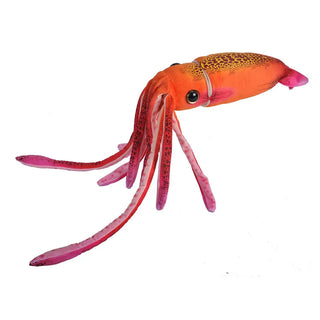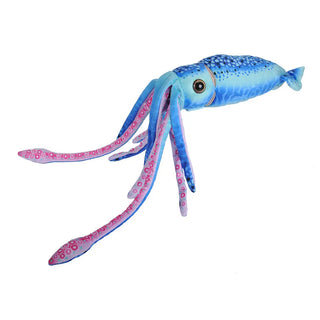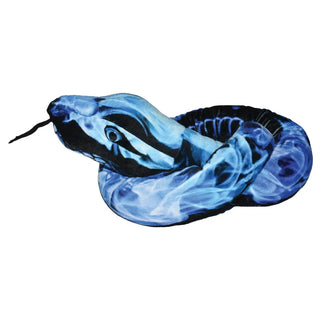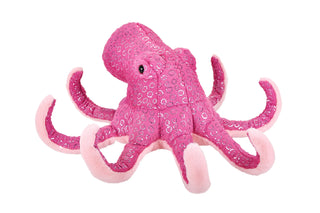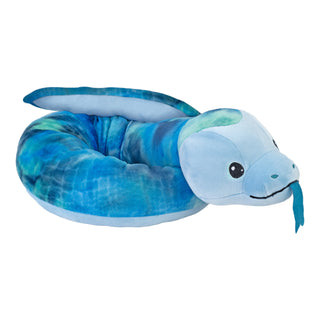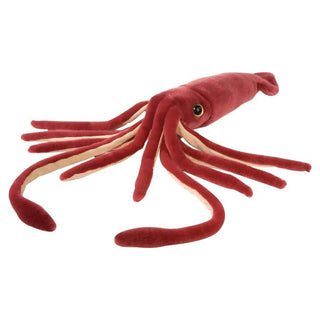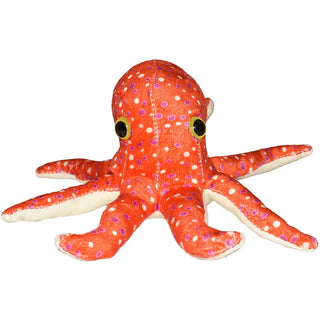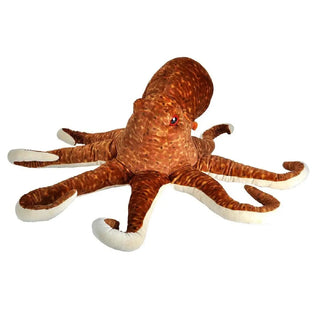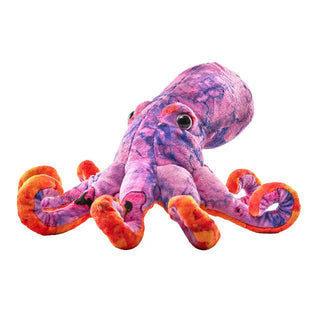Your Search For "jellyfish" Revealed The Following:
Filter
Active Filters
Wild Calls Triton Conch Shell - 8"
Regular price
$10.40
$12.99
Save 20%
- Unit price
- / per
INCLUDES:
- Age:0+
- Brand:Wild Calls
- Features:With Sound
- Gender:Boy
- Gender:Girl
- Size:8"
Regular price
$10.40
$12.99
Save 20%
- Unit price
- / per
Orange Squid Stuffed Animal - 12"
$25.99
- Unit price
- / per
INCLUDES:
- Age:0+
- AnimalType:Squid
- Brand:Wild Republic
- Gender:Boy
- Gender:Girl
- Size:12"
- Squid
$25.99
- Unit price
- / per
Tube of Ocean Babies Figurines
$15.99
- Unit price
- / per
INCLUDES:
- Age:3+
- Brand:Wild Republic Nature Tubes
- Easter
- Gender:Boy
- Gender:Girl
$15.99
- Unit price
- / per
Blue Squid Stuffed Animal - 12"
$25.99
- Unit price
- / per
INCLUDES:
- Age:0+
- AnimalType:Squid
- Brand:Wild Republic
- Gender:Boy
- Gender:Girl
- Size:12"
- Squid
$25.99
- Unit price
- / per
Blue Flames Snake Stuffed Animal - 54"
$19.99
- Unit price
- / per
INCLUDES:
- Age:0+
- Brand:Snakesss
- Gender:Boy
- Gender:Girl
- Size:54"
$19.99
- Unit price
- / per
Octopus Stuffed Animal - Foilkins
$25.99
- Unit price
- / per
INCLUDES:
- Age:3+
- Brand:Foilkins
- Gender:Boy
- Gender:Girl
- Size:12"
$25.99
- Unit price
- / per
Squishy Snakes Blue Snake Stuffed Animal - 52"
$26.99
- Unit price
- / per
INCLUDES:
- Age:0+
- Brand:Squishy Snakes
- Gender:Boy
- Gender:Girl
- Size:52"
$26.99
- Unit price
- / per
Squid Stuffed Animal - 12"
$25.99
- Unit price
- / per
INCLUDES:
- Age:0+
- AnimalType:Squid
- Brand:Wild Republic
- Gender:Boy
- Gender:Girl
- Size:12"
- Squid
$25.99
- Unit price
- / per
Octopus Stuffed Animal - 7"
$9.99
- Unit price
- / per
INCLUDES:
- Age:0+
- AnimalType:Octopus
- Brand:Hug'ems
- Easter
- Gender:Boy
- Gender:Girl
- Octopus
- Size:7"
$9.99
- Unit price
- / per
Rainbowkins Sea Turtle Stuffed Animal - 12"
Regular price
$18.40
$22.99
Save 20%
- Unit price
- / per
INCLUDES:
- Age:0+
- Brand:Rainbowkins
- Gender:Boy
- Gender:Girl
- Size:12"
Regular price
$18.40
$22.99
Save 20%
- Unit price
- / per
Octopus Stuffed Animal - 30"
$82.99
- Unit price
- / per
INCLUDES:
- Age:0+
- AnimalType:Octopus
- Brand:Cuddlekins
- Gender:Boy
- Gender:Girl
- Octopus
- Size:30"
$82.99
- Unit price
- / per
Softies Jellyfish Action Toy - 6"
$113.99
- Unit price
- / per
INCLUDES:
- Age:3+
- Brand:Softies
- Gender:Boy
- Gender:Girl
- Size:6"
$113.99
- Unit price
- / per
Fidgets Octopus Action Toy - 4"
$9.99
- Unit price
- / per
INCLUDES:
- Age:3+
- Brand:Fidgets
- Gender:Boy
- Gender:Girl
- Size:4"
$9.99
- Unit price
- / per
Mysteries of Atlantis Octopus
Regular price
$12.00
$14.99
Save 20%
- Unit price
- / per
INCLUDES:
- Age:0+
- Brand:Mysteries of Atlantis
- Gender:Boy
- Gender:Girl
- Size:8"
Regular price
$12.00
$14.99
Save 20%
- Unit price
- / per
Conch Queen Shell Stuffed Animal - 8"
$12.99
- Unit price
- / per
INCLUDES:
- Age:0+
- Brand:Wild Calls
- Features:With Sound
- Gender:Boy
- Gender:Girl
- Size:8"
$12.99
- Unit price
- / per
Mysteries of Atlantis Narwhal
$14.99
- Unit price
- / per
INCLUDES:
- Age:0+
- Brand:Mysteries of Atlantis
- Gender:Boy
- Gender:Girl
- Size:8"
$14.99
- Unit price
- / per
You're viewing 1-16 of 16 results


